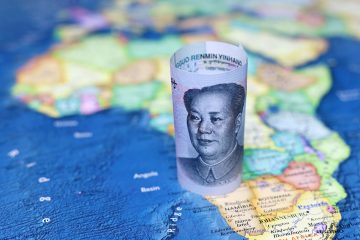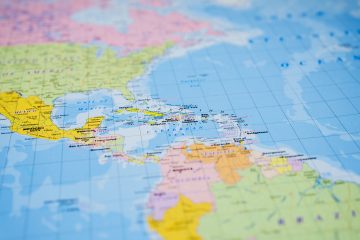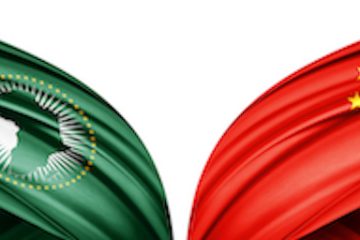
A New Battleground: Russia’s “Grey Zone” Warfare in the Sahel
As Russia’s invasion of Ukraine enters its second year, the Wagner Group has been expanding its Kremlin-backed footprint across the globe. In particular, the mercenary network has been deploying forces in Africa’s Sahel region, revealing how Moscow is strategically blurring the line between “anti-terror” operations, security-for-resources tradeoffs, and covert political influence. In recent months, U.S. officials have accused Wagner of exploiting resources in the Central African Republic (CAR), Mali, Sudan, and beyond in an effort to fund Putin’s “war machine” in Ukraine — a charge Moscow dismissed as “anti-Russian rage”. Beyond the Ukraine crisis, however, the group’s activities and atrocities are painting a dire picture of Russia’s long-term strategy to destabilise Western relationships and gain a foothold in the African …

China’s Role in Restructuring Debt in Africa
Africa’s public debt burden has doubled from 2010 to date. Data from the International Debt Statistics Data as of December 2022 shows that African countries owe $ 644855.2 billion (USD). The International Monetary Fund (IMF) and the World Bank consider 22 low-income African countries to be either in debt distress or at high risk of debt distress as of November 2022. Debt distress in this context means a country is experiencing difficulties in servicing its debt. A high debt burden could risk the continent’s economic growth, development, and climate investments. The additional global economic downturn and falling commodity process could compound the issue for countries on the continent. While there is no immediate threat of systemic and financial collapse due …

The Biden Administration Must Improve its Foreign Policy Toward Latin America
Historian Joseph S. Tulchin once described U.S.-Latin American relations as a “historical legacy of conflict.” Over the last two years, the Biden administration has neglected regional concerns in Latin America. With a new year ahead, the Biden administration must revaluate its relationship with the region with ample considerations of social geopolitical elements tinted with historic predispositions. Regional concerns cannot continue to be addressed from a preoccupied hardline position. As other nations outside the Western hemisphere strengthen their influence in Latin America, the time to disregard human dignity as imperative to current affairs must end. A U.S. Progressive Foreign Policy While the Biden administration has advocated for a foreign policy stipulated to adhere to international human rights norms, it has failed …

OxPol Blogcast. Women in Politics – In Conversation with Rachel Bernhard: Can Gender-Typical Appearance and Behaviour Help Candidates Win Office?
OxPol Blogcast showcases research, analysis, insights, and experiences from the members of the University of Oxford’s Department of Politics and International Relations (DPIR), and specialist guests from the Oxford academic community and beyond. Are masculine behaviour and appearance among the prerequisites for electoral success, in line with popular belief? On this episode, OxPol Blogcast host Anastasia Bektimirova is joined by Dr. Rachel Bernhard, an Associate Professor at the University of Oxford’s Department of Politics and International Relations (DPIR), to put the view of the political arena as a place favouring conventionally masculine traits to a test. Focusing on the United States, Rachel explains what is understood as masculinity and femininity in political leadership, and guides us through the observed variation in voters’ response to those cues. We also discuss …

OxPol Blogcast. Women in Politics – Formal and Informal Politics of Women’s Representation and Activism in Latin America
OxPol Blogcast showcases research, analysis, insights, and experiences from the members of the University of Oxford’s Department of Politics and International Relations (DPIR), and specialist guests from the Oxford academic community and beyond. On this episode, we are focusing on the state of women’s descriptive and symbolic representation in party and civil society politics across Latin American countries. OxPol Blogcast host Anastasia Bektimirova welcomes three guests to bring you the stories of women’s agency at different levels of political participation in the region. The guests are sharing their expert view on the social environment, political culture, policies as well as written and unwritten rules that are shaping women’s progress and experiences in pursuing elected office, and engaging politically from civil society. With Dr. Malu Gatto, an Associate …

Bridging State Responsibility and Opportunities as African Countries Join in the Digital Silk Road
In 2015 China launched the Digital Silk Road (DSR hereafter). The DSR is an essential part of the One Belt, One Road (BRI) strategy with significant domestic and foreign policy objectives. China has made enormous investments that have allowed it to achieve rapid technological advancement and economic growth. As of 2021, Chinese firms were three of the world’s largest technology companies by revenue. According to the World Intellectual Property Organisation (WIPO), in 2020 China reported 1.5 million patent applications, 2.5 times more than the second leading country, the United States. The DSR is part of China’s plan to spread its technical and proprietary knowledge by building telecommunications, data, and financial infrastructure in countries participating in the BRI. The Nigerian digital …

Why Strengthening the Rule of Law Matters in Transitional Justice: Lessons from Colombia
Since the end of the Cold War, Transitional Justice (TJ) has become the dominant framework informing peacebuilding when wars end. Each year, countries establish TJ systems to come to terms with a violent past. However, TJ rarely lives up to its promises. Criticism of TJ often focuses on its (in)ability to heal the wounds of violence, foster forgiveness and reconciliation in divided societies, or deliver restorative justice for both the victims and victimisers of a conflict. In this piece, I shed light on an often-overlooked limitation of TJ: its disregard for the Rule of Law (RoL). RoL, understood as a principle of governance by which law governs societies, is often seen to belong outside the remit of TJ. This is …
OxPol Blogcast Episode 7: Latin America’s Emerging Debt Crisis
Welcome to the OxPol Blogcast, a podcast where we will be sharing research, analysis, and experiences from members of the University of Oxford’s Department of Politics and International Relations. On each, episode we will talk to a guest about a piece they’ve written for the OxPol Blog. Then, we’ll discuss their larger research agenda, their insights on conducting political science, and their time at Oxford. On this episode of the OxPol BlogCast, host Chase Harrison talks to DPhil student Christoph Sponsel about Colombia’s credit rating, the Latin American debt crisis of the 1980s, and doing work at the intersection of political science and economics. Read the original blog post here: https://blog.politics.ox.ac.uk/colombian-mass-protests-foretelling-an-emerging-latin-american-debt-crisis/









